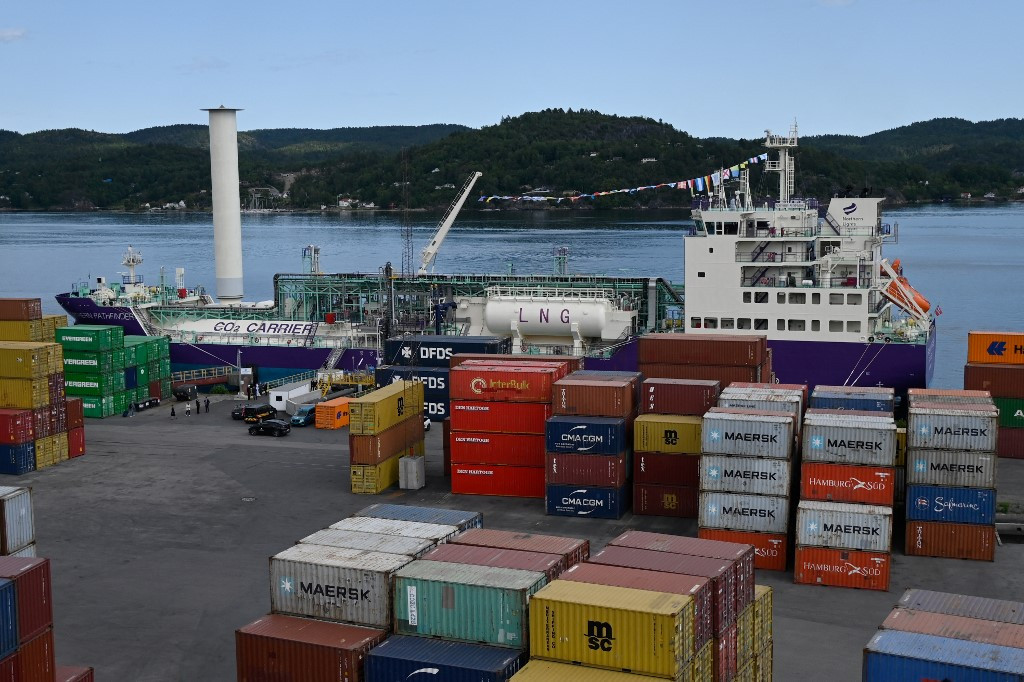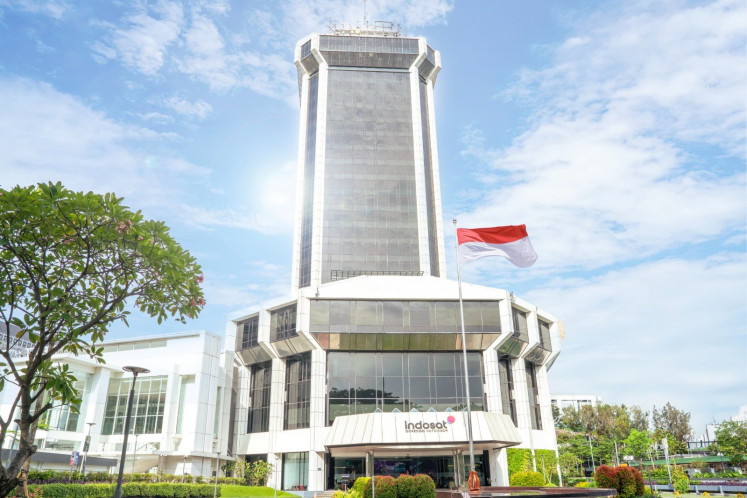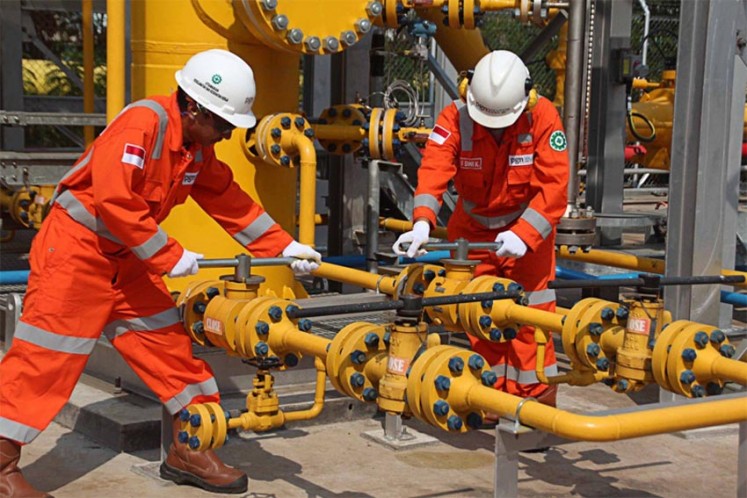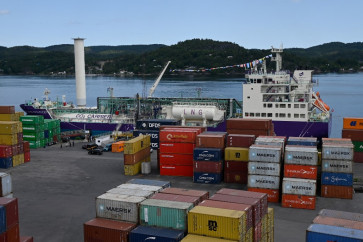Popular Reads
Top Results
Can't find what you're looking for?
View all search resultsPopular Reads
Top Results
Can't find what you're looking for?
View all search resultsHigh costs, risks for Danantara in carbon capture projects
The state asset fund faces significant financial risks and must exercise caution as it considers carbon capture and storage (CCS) projects, as the current carbon price offers a negligible incentive against costs that can be 50 times higher, a leading energy analyst warned.
Change text size
Gift Premium Articles
to Anyone
 The CO2 carrier vessel Northern Pathfinder is pictured at the Brevik harbor in Norway on June 18, 2025, during the inauguration of a carbon capture and storage (CCS) project, a technology seen as crucial to curbing climate change but which is struggling to find a viable economic model. (AFP/Jonathan Klein)
The CO2 carrier vessel Northern Pathfinder is pictured at the Brevik harbor in Norway on June 18, 2025, during the inauguration of a carbon capture and storage (CCS) project, a technology seen as crucial to curbing climate change but which is struggling to find a viable economic model. (AFP/Jonathan Klein)
I
ndonesia’s state asset fund Danantara faces significant financial risks and must exercise caution as it considers carbon capture and storage (CCS) projects, as the current carbon price offers a negligible incentive against costs that can be 50 times higher, a leading energy analyst warns.
Putra Adhiguna, managing director of the Energy Shift Institute, in an interview with The Jakarta Post highlighted the stark economic challenges of CCS/CCUS, pointing to global projects that frequently underperform and carry long-term liability concerns.
“CCUS projects are often considered high-risk, as many projects globally are 20 to 40 percent below their initial performance promises and carry long-term carbon dioxide [CO2] storage liabilities,” Putra said on Thursday. “Danantara needs to carefully consider the urgency.”
His caution comes amid the government's push to establish Indonesia as a CCS hub, leveraging its vast potential storage capacity in depleted oil and gas fields. Newly issued Presidential Regulation No. 110/2025 on the Economic Value of Carbon (NEK) was a step forward, he explained, but the rewards were too low.
“The presidential regulation demonstrates the government's commitment and provides an incentive, but the amount is expected to be very small compared to the high costs of CCS/CCUS,” he explained. “[Compared to] the NEK of US$2 per tonne of CO2, CCS costs could be 50 times higher, around $100 per tonne.”
This risk-reward imbalance presents a core dilemma for Danantara, which is mandated to finance national strategic projects while maintaining commercial viability.
Fabby Tumiwa, executive director of the Institute for Essential Services Reform (IESR), did not expect the new rule to get new investors interested in Indonesian CCS/CCUS projects. He noted that CCS projects were not yet formally recognized in Indonesia's national climate targets (NDC) as part of emission reduction efforts, which has created uncertainty.

















